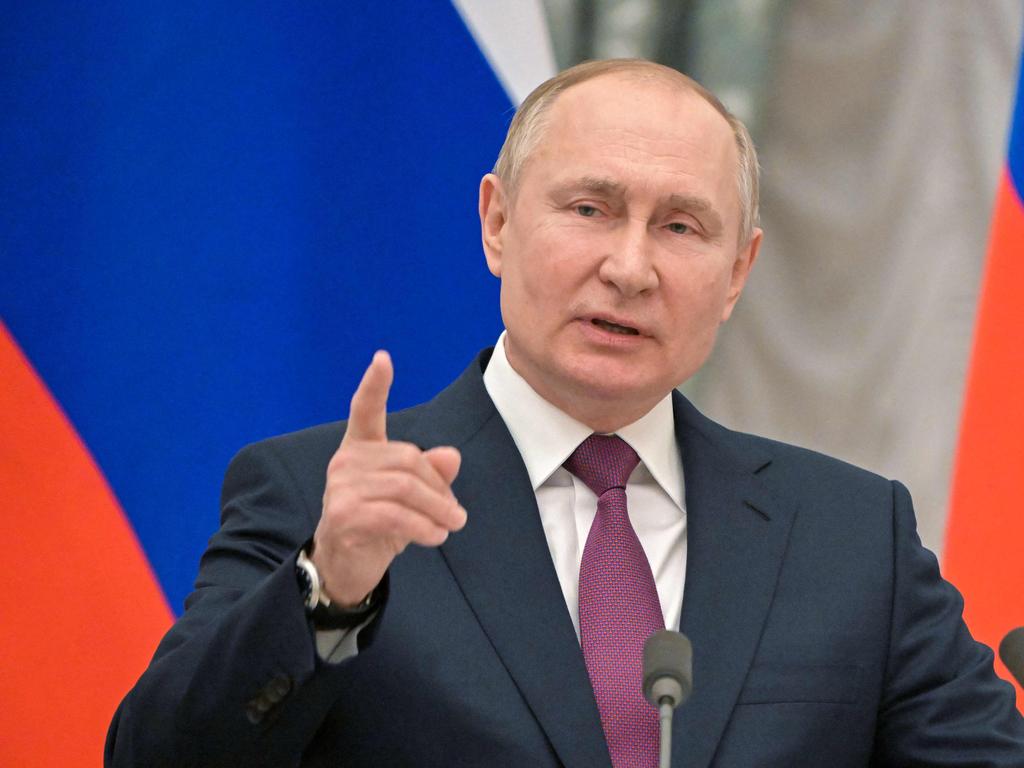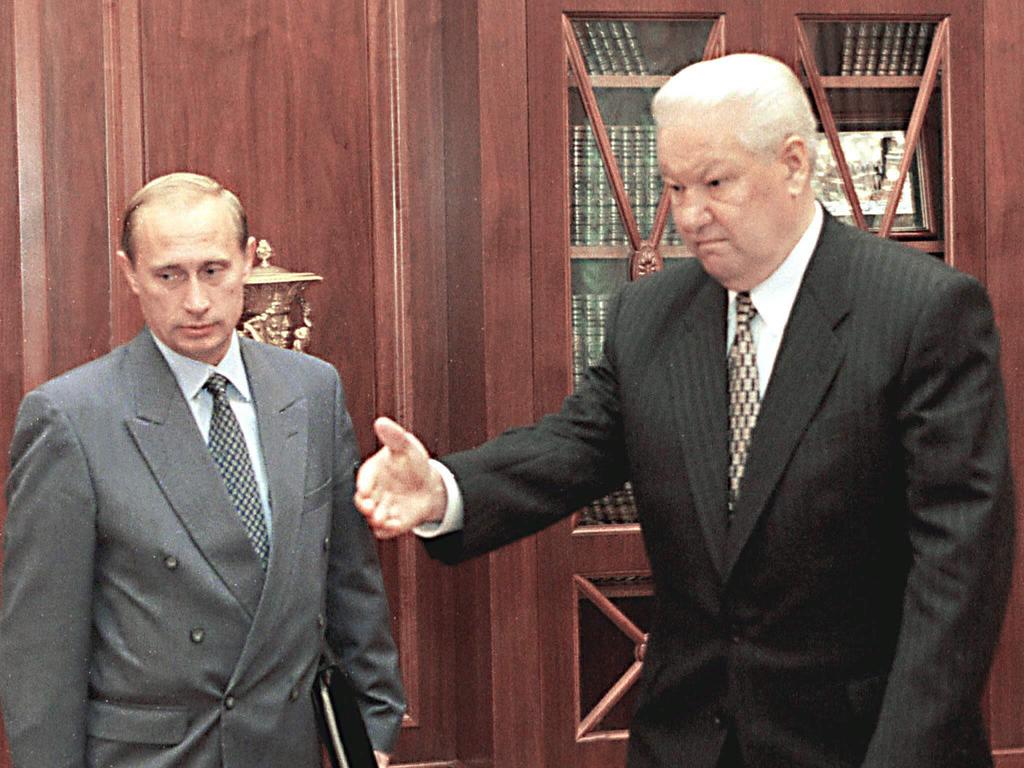Yes, if he gets desperate.
Afghanistan is mountainous with lots of hideouts for guerillas, and not so easily to roll through with tanks.
Most of Ukraine is flat steppe, much more difficult to sustain an extended defense.
EFA
The Taliban was a collection of goat herders in flip flops, the Ukrainians have an army.
The US in Iraq might be a better comparison
This a disgrace. Absolutely ridiculous.
Poland calls for ‘fiercest possible’ sanctions on Russia
Polish Prime Minister Mateusz Morawiecki is calling for the “fiercest possible” sanctions against Russia.
“We must immediately respond to Russia’s criminal aggression on Ukraine,” Morawiecki wrote on Twitter.
“Europe and the free world have to stop Putin. Today’s European Council should approve fiercest possible sanctions. Our support for Ukraine must be real.”
Whilst Belarus is focussing on Ukraine now would be a perfect time for the Poles and Lithuanians to strike
Ukraine’s military says it has shot down Russian aircraft
The military says five Russian planes and one Russian helicopter have been shot down in the Luhansk region.
I’ve seen this de-nazification garbage being spouted by pro-Russian commenters all over the place. How anyone can buy into this nonsense is beyond me…
Of course, there’s a good chance that these commenters are simply propaganda.
It plays to the Russian psyche. It’s not intended for anyone else.
Hope it’s true and hope for many more
Big problem i see with sanctions is that his best buddy dictator Xi the Pooh will ensure they do not hurt to much
Russia’s invasion of Ukraine: How Vladimir Putin has a personal quest to create a USSR of old
Vladimir Putin’s very personal quest comes from a deep desire to restore the golden age glory of the USSR one war at a time.
 Charles MirandaDefence Writer
Charles MirandaDefence Writer
Follow
2 min read
February 24, 2022 - 4:45PM
News Corp Australia Network
Paths to war are always complex and traditionally involve old maps and claims fused with cultural, political or religious rivalries dating back centuries and rarely resolved.
But this war is down to just one thing – Vladimir Putin.
He has been on a quest of bloody minded revenge for 30 years against Western democracies, notably from Europe and the US, whom he blames for putting an end to the once glory of the USSR.
Indeed he quit his role as a KGB agent in 1991, the year the Soviet Union declared glasnost reformation that put an end to the Cold War, a strict corrosive Communist dogma and the empire which ultimately broke allowing States to pursue the sorts of freedoms enjoyed by other nations.
He has been obsessed ever since with re-forming the union, one region or nation at a time and Ukraine and Georgia and their fledgling democratic parliaments have long remained easy targets.
For many Russians of his generation, who were raised on a diet of Soviet propaganda, the disintegration of the USSR and its global standing has remained an open wound.
Russian President Vladimir Putin. Picture: AFP
It was a defeat without a war that many like Putin believed should never have happened and consider former leaders and architects of glasnost “openness” Mikhail Gorbachev and Boris Yeltsin something of traitors.
Putin has declared more than once the USSR’s demise was the “greatest geopolitical catastrophe of the 20th century”, over and above apparently two devastating world wars.
That is why he thinks little now of starting a third global conflict.
Since Putin began working for the Yeltsin administration in Moscow in 1996, where he was appointed Yeltsin’s deputy chief of presidential staff, he could see first-hand how a policy of transparency devalued authoritarian leadership allowing criticism and challenge to policy and rule and foreign intrusion.
He also watched as the European Union expanded and began absorbing either in friendship or membership, nations once part of or close to the USSR.
Former Russian President Boris Yeltsin and his former National Security Chief, Vladimir Putin in 1998.
When in 1999 Putin became acting president of the Russian Federation he vowed to make Russia great again.
In 2014 a chance opened when a pro-democracy movement in Ukraine saw the Russian-aligned Viktor Yanukovych voted out of parliament after he failed to adopt promised reforms to align closer to the EU.
Putin declared the action “a coup” and ordered his generals to invade and seize the already restive Ukrainian peninsula of Crimea.
His rationale was simple: “if a fight is inevitable, you must strike first” he said in 2015 as he authorised Russian troops to then invade Ukraine’s Donbas region. This was ostensibly in support of pro-Russian militias also seeking greater autonomy from Kyiv. Autonomy was granted but then the two major cities Donetsk and Kharkiv backed by Russian troops and heavy armaments declared themselves mini republics.
More than 14,000 lives have been lost in this Donbas battle since 2014, including the 298 lives lost aboard the accidentally shot down Malaysian Airlines flight MH17.
Now Putin wants the rest of Ukraine.
His logic has always been Ukrainians were pro-Russian but were “the subject of manipulation” by the West, namely the United States and the European NATO bloc seeking to contain Russian ambitions.
“In their (the Kremlin) understanding, war would not be an attack on Ukraine, but a liberation of the Ukrainian people from a foreign occupier,” the CEO of R.Politik analytical centre Tatiana Stanovaya.
A conquest of Ukraine, Putin envisages, would see something of a domino effect for other former USSR states then history, he hopes, can be reversed.
Estonia, Latvia, Lithuania, Poland and other allies have agreed to meet under article 4 of the NATO agreement to discuss the current threat.
Our newest North America correspondent Carrington Clarke has just been explaining why that’s significant.
"Article 4 of the NATO agreement basically means that the NATO members will meet to discuss a threat to their own security .
"Ukraine is not part of NATO, and a lot of the rationale that Vladimir Putin has put out regarding his actions towards Ukraine is because he didn’t want Ukraine getting access to NATO.
"Those countries that are in NATO, including Poland and some of the Baltic states, they’re obviously very concerned. War has come to their doorstep and they want to ensure that the NATO forces are in place to ensure that they do not become the next countries to be attacked.
“Even though you would think that Vladimir Putin would not think he has a realistic, or it would not be in his interest to attack NATO countries, the nature of war is things can get out of control very easily.”
Hmmm, with all the talk of false flag ops by the Russians, wouldn’t it be ironic if something untoward happened in the Baltic states.
And I don’t wish for that at all, by the way.
NATO’s stance is “if you attack one member, you attack all members”.
If there is a hit on Poland, then it will be an incredibly unfortunate circumstance indeed.
Best guess yes, Delta Force operatives and SAS.
I would suggest the CIA Special Activities Division also.

